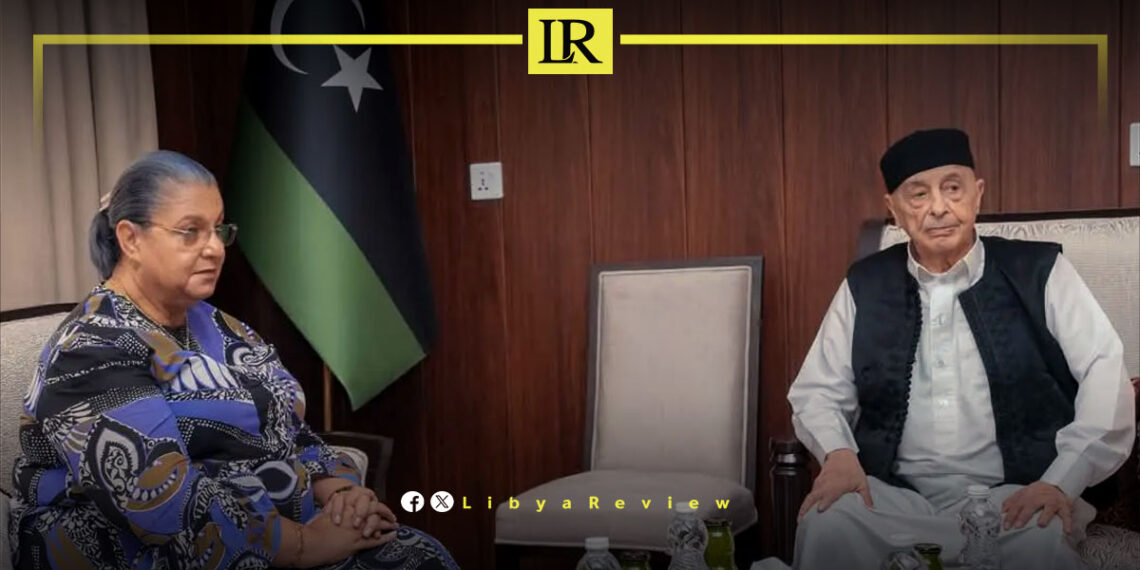Speaker of the Libyan House of Representatives, Ageela Saleh, has reiterated the urgent need to form a new unified government as a prerequisite for holding presidential and parliamentary elections in Libya.
Saleh made the statement during a meeting on Monday with the Head of the United Nations Support Mission in Libya (UNSMIL), Hanna Serwaa Tetteh, and her deputy, Stephanie Khoury, at his office in Al-Qubba.
He emphasised that establishing a unified executive authority is a critical step towards ending the prolonged political division and creating a stable environment for free and fair elections.
Saleh also underscored the importance of continued cooperation with the United Nations and the international community. He reaffirmed the House of Representatives’ commitment to the political agreement and the outcomes of the 6+6 Joint Committee as the framework for resolving the crisis.
For her part, Tetteh expressed her ongoing efforts to rebuild trust between Libya’s rival factions and to bridge their differences in pursuit of a sustainable political solution.
Libya has been in chaos since a NATO-backed uprising toppled longtime leader Muammar Gaddafi in 2011. The county has for years been split between rival administrations.
Libya’s economy, heavily reliant on oil, has suffered due to the ongoing conflict. The instability has led to fluctuations in oil production and prices, impacting the global oil market and Libya’s economy.
The conflict has led to a significant humanitarian crisis in Libya, with thousands of people killed, and many more displaced. Migrants and refugees using Libya as a transit point to Europe have also faced dire conditions.
The planned elections for December 2021 were delayed due to disagreements over election laws and the eligibility of certain candidates. This delay has raised concerns about the feasibility of a peaceful political transition.
Despite the ceasefire, security remains a significant concern with sporadic fighting and the presence of mercenaries and foreign fighters. The unification of the military and the removal of foreign forces are crucial challenges.


